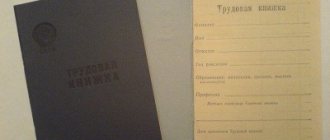Today, a fine for selling goods without labeling is no longer a rarity: innovations in Federal Laws are aimed at improving the quality of products and reducing the amount of counterfeit goods on the market, the share of which has reached a truly critical level. Despite all the difficulties that arise, businessmen and entrepreneurs are actively switching to a new format and are forced to obey the rules. However, among the bulk there are still violators who, when caught, are forced to pay significant sums. We talk in detail in the article about how much it costs to break the law and the consequences of evading duties.
Violation of sales rules: fines for goods without labeling or incorrectly labeled products
In order to prevent even the slightest offense, you should know exactly all the parameters that must be observed. Today, we can identify several of the most common misconceptions that inevitably entail the imposition of penalties.
Code missing
This is a common and rather primitive violation. Data-Matrix coding is applied directly to the packaging, tag or label. If you skip this point, the seller will not only be fined, but will also be subject to additional seizure, which will entail double financial costs.
Non-compliance with rules
This characteristic affects poor-quality barcode printing or the inability to identify the marker. In this situation, it is important to familiarize yourself in detail with the print quality recommendations from the CRTP operator. If discrepancies are detected, the sale is considered illegal.
Penalty for incorrect labeling of goods: discrepancies in information in the UPD
As an example, we can give a case where the code is present, but there is no information about them in the UPD. A different model is specified that does not correspond to the item. If discrepancies of this kind are detected, the store should not accept the cargo, since their sale on the trading platform is considered illegal. Confiscation is also possible here.
The store skipped the relabeling stage
It is necessary to relabel a product when the assigned identifier is lost. The same procedure is required in case of returning products with a completely missing code on the label or if they are damaged. If it is impossible to install the previous GTIN, you must submit a request to assign a new one. If an organization does not follow these steps in order to quickly sell without a barcode, then liability is assigned equal to that if there was a sale of completely unlabeled products.
Incorrect return processing
A situation may arise when the seller decides to formalize a procedure to put the balances into circulation. In this case, the point has the right to accept products from the buyer who did not receive an identification number, as well as if it was purchased before the adoption of the Federal Law on labeling.
Transportation of tobacco products without labeling
Penalties for each specific case are precisely defined and described in detail in the relevant legislative act: according to the law, no more than 600 pieces are allowed for transportation. cigarettes/ 150 pcs. cigars / 750 gr. tobacco per 1 citizen. In the case of simultaneous transportation of all the listed varieties of tobacco products, their total weight should not exceed 750 g. If these requirements are not met, the citizen faces an administrative monetary penalty in the amount of 30-50 thousand rubles with confiscation of property, which causes a fairly significant double loss.
Product Labeling Law
The conditions for labeling goods and the liability that awaits violators are regulated by several regulatory documents. Fundamental Law No. 487-FZ of December 31, 2022 is valid from January 1, 2019.
The law changed the previous acts on trade and cash registers, prohibited the sale of goods without codes and introduced penalties for violations. According to the document, labeling will be introduced everywhere by 2024.
Fines for the production, import and sale of products in violation of the rules are prescribed in Article 15.12 of the Code of Administrative Offenses of the Russian Federation. It also states that those who try to circumvent the requirements may have their goods taken away. At the same time, the company will be able to continue operating.
Violators may also receive criminal penalties, which will comply with Article 171.1 of the Criminal Code of the Russian Federation.
The list of goods for which labeling codes are required is available to the Government of the Russian Federation No. 792-r. Download it to see if your business needs to comply with the new rules.
How to evade punishment
The only sure way to avoid liability is to fully comply with the law. It follows from this that in situations where the identifier is missing, errors are detected or it is impossible to read it, the goods are not allowed for acceptance. First of all, the owner completely eliminates the identified errors and only then transfers the product.
If you are an owner, it is important to accurately track deadlines and compliance with rules. The product is subject to relabeling if it is returned without a code. Remaining stock in the warehouse must also be sent through the cycle after the entry into force of legal grounds.
There are a number of conditions that are required when working with markings.
Qualified electronic signature
It is necessary to protect documents sent by e-mail and determine their legal significance.
Document flow
The state information system for monitoring goods records all information automatically after signing the universal transfer act.
Equipment
All equipment of the workshop is subject to modification and re-equipment of equipment for printing markings, identifying defects, organizing storage and subsequent sale. If there is no technical possibility, then it is necessary to purchase special equipment.
Cash register for retail and catering
Equipment is required to timely transmit data to Chestny ZNAK, which is described in Federal Law-54.
Special software
The software greatly facilitates production stages and automates them. Find more specialized systems on the official website cleverence.ru.
Types of counterfeit
Counterfeit
very diverse, it can be divided into several types.
- Using a brand name or trademark that is very similar to the designation of any of the “promoted” brands. With such counterfeiting
, as a rule, 1-2 letters in the name of a well-known brand on the label are changed (for example, Salamandder instead of Salamander), as a result of which many do not pay attention to this and buy
a counterfeit
, believing that they are becoming the owners of a branded item. - Using someone else's logo without making changes to it while copying the external features of the product. Counterfeiting
in this form is less common than the previous one, since the fact of the offense in this case is obvious, which means it is much easier to hold the distributor accountable. - “Piracy” is the sale of copies of musical, artistic, and literary works without the permission of the author or copyright holder. This group also includes gratuitous counterfeiting - the distribution of such works on the Internet.
- Use of inventions, developments (including computer programs), the rights to which are registered to other persons.
We analyze popular questions in detail
Despite the rather long-term transition of modern business to the Honest SIGN programs, some entrepreneurs were not ready for strict monitoring of processes. Today, violations are regularly identified that affect manufacturers and intermediary sellers on the way to the final consumer. In order to avoid significant financial losses, fines and imprisonment, you should know exactly which offenses are considered in court most often and what the consequences of inattention are.
Is flashing the cash register required?
The absence of a printed code on a receipt is an offense described in 54-FZ, which regulates the use of cash register control equipment. To avoid punishment, the device must be flashed in advance.
How to work with leftovers
The principle of interaction with the category of residuals differs depending on the group. For example: shoes manufactured or delivered to the store in the period before 07/01/2020 must be marked as surplus until 09/01/2020. In the future, even storage and transportation will be considered a violation. If it was purchased abroad, but for a number of reasons is delayed at the border, the Federal Customs Service will not release the batch for sale on the domestic market. In this case, marking is allowed within the temporary storage warehouse on the territory of the customs office for subsequent release. Identical rules apply to all groups.
Simplification of all stages is possible thanks to the active implementation of convenient and practical software from Cleverence into the usual algorithm.
Can't scan code upon arrival
Here you should check that the identifier is spelled correctly. Sometimes suppliers indicate only partially or add a crypto-tail to it, which contradicts the “Honest SIGN”. If an error is detected, acceptance must be rejected and a new invoice requested. It is also permissible to completely abandon the products.
How to avoid fines
It is important to carefully study and study the rules describing individual product categories. Thus, for light industry enterprises, identifier codes contain simplified information, in contrast to large-sized and specific inventions.
Each seller and intermediary undertakes to connect to the State program, which guarantees the transfer of data at all levels. Unified interaction algorithm:
- it is necessary to register the organization with Chestny Znak;
- then an electronic digital signature is assigned for marking;
- equipment update and flashing;
- ordering and assignment of codings;
- transfer of information data to the GIS MT operator.
If you follow the full cycle, there is no need to fear punishment.
Examples of fines and confiscation for incorrect labeling
From July 1, 2022, Russia has banned the wholesale and retail sale of shoes without labeling. Businesses had a year to prepare to operate under the new rules. But not everyone took advantage of this opportunity. Soon after mandatory marking started, problems arose for violators.
In Vladivostok, customs officers seized 127 pairs of shoes that were sold in the store of an individual entrepreneur in the city market. There were no codes on the packaging of sneakers, boots and shoes, or on the products themselves, that would confirm the legality of the import of the goods. They want to initiate an administrative case against the violator.
A similar story happened in Volgograd. There, after an inspection by Rospotrebnadzor, 210 pairs of unmarked shoes worth 123 thousand rubles were seized. An administrative case was opened against an individual entrepreneur whose store committed a violation.
Another example in Volgograd: employees of the Ministry of Internal Affairs seized more than 25 thousand items of clothing and shoes without markings worth 9.5 million rubles. The goods were in the warehouse and on the sales floor. A criminal case was opened against the seller. He faces up to six years in prison.
In the Oryol region, Rospotrebnadzor removed 189 pairs of shoes without markings from sale. The cost of the confiscated goods is 275,400 rubles. The inspection was carried out after customer complaints.
A large batch of shoes was seized in the Rostov region. Customs officers, together with Rospotrebnadzor employees, confiscated more than 24 thousand pairs. The total cost exceeded 13 million rubles. At the same time, 23,700 couples did not register with Honest Sign at all. The remaining ones were marked incorrectly. Administrative matters are now handled by the court.
There are examples of non-compliance with rules in other industries. Mandatory tobacco labeling came into effect a year earlier than similar requirements in the shoe industry.
In July 2022, the Kaliningrad Magistrate Court fined the owners of a local store that sold unlabeled cigarettes 200 thousand rubles. By court decision, the goods were confiscated.
In October 2022, employees of the FSB department for the Chelyabinsk region seized 125 thousand packs of unmarked tobacco products from illicit trafficking in the city of Chebarkul. A local resident brought them from Belarus and delivered them to various retail outlets. The value of the seized packs exceeded 6 million rubles.
In April 2022, in the Naro-Fominsk urban district, a warehouse was found with 2.5 million packs of unlabeled tobacco products worth 96 million rubles. A criminal case was opened against the violators.
In Irkutsk, more than 40 thousand pairs of unmarked shoes were confiscated from three stores. The total cost of the shipment, which customs discovered in May 2022, exceeded 35 million rubles. The company where violations were found undergo an inspection with the participation of the police.
Will it be a violation to work with the markings without reflashing the cash register?
Yes. If you do not print the marking code on the receipt, then you are violating the law 54-FZ on the use of cash register equipment. Read more about its requirements and recently introduced amendments in a special section on our website. To prevent violations, it is better to reflash the cash register.
What to do with unmarked leftovers?
The procedure for handling leftovers may vary depending on the product group. For example, footwear inventory manufactured or purchased before July 1, 2022 could only be labeled as inventory through September 1, 2022. Read our article about what to do after this date.
What should I do if the marking code is not scanned upon receipt?
It is possible that your supplier did not fully specify the code or added it along with a crypto-tail, which does not comply with the recommendations of the Honest Sign marking system. In this case, you should reject the receipt and request an invoice with the correct codes from the supplier. You can also return the entire shipment of goods to him.
How to avoid fines for violating labeling rules?
First, study the requirements for each specific product category. For example, it is useful for businesses to know that depending on the type and purpose of light industry products, labeling may contain different information.
All participants in the turnover must connect to the system to transfer data about goods. In a simplified form, the procedure for all industries looks like this:
- Registration of a company in Honest Znak.
- Obtaining a qualified electronic signature for marking goods.
- Updating the cash register firmware.
- Order codes.
- Transfer of information about the product to the labeling system operator.
If manufacturers, importers and sellers comply with operating rules, they do not have to fear fines and confiscation of goods.
Last news
Given that the law is relatively new and businesses are going through a fairly smooth, but nevertheless difficult, transition process, posts are constantly being published to help other entrepreneurs. So, according to the latest data:
The Ministry of Industry and Trade takes responsibility for transmitting information to the Ministry of Internal Affairs and Rospotrebnadzor about companies that sell products illegally:
- The Association of Companies engaged in retail sales has prepared a list of 270 organizations that, according to supposed information, sell goods without a DataMatrix marker.
- The number of representatives of the tobacco industry exceeded 105 thousand, who were assigned over 16 billion codes. The footwear industry has registered about 65,000 organizations that have received more than 2 billion identifiers.
- Starting from October 1, 2022, mandatory labeling of perfume products and photographic equipment was introduced. In just 7 days, more than 9 million items were added to the system and approved for introduction into circulation. Speaking of photographic equipment, about 65 thousand items entered the market;
- Starting from 08/01/2021, an experiment on barcoding of antiseptic products will start, which was initiated by the manufacturers themselves. The action is aimed at reducing the level of counterfeit goods.
- From June 1, the labeling process for ice cream and cheese will become mandatory. From September 1, the procedure was introduced for dairy products whose shelf life does not exceed 40 days. Starting from 12/01/21, labeling is required for the entire category and if it is not on the product, accordingly, this will be followed by the imposition of sanctions in the form of fines.
Number of impressions: 1249
Liability and penalties for lack of marking
If there are no codes on the product, liability can be both administrative and criminal.
Officials can also be held responsible for violations if they control the production of products and enter the necessary information into the labeling system.
Administrative liability occurs if:
- produce goods that are subject to labeling without special codes;
- sell such goods wholesale and retail.
Fine for producing goods without labeling
Officials can receive a fine of up to 10 thousand rubles. But legal entities for a similar violation can be fined up to 100 thousand rubles.
Penalty for selling unlabeled products
Ordinary citizens face a fine of up to 4,000 rubles. Officials will have to pay up to 10 thousand rubles, and legal entities - up to 300 thousand rubles.
Individual entrepreneurs who produce or sell goods without markings risk receiving a fine of 5,000 to 10 thousand rubles.
In the case of unlabeled tobacco products, the fines will be even higher. For the production, officials can be fined up to 15 thousand rubles, and legal entities - up to 150 thousand rubles. The sales amounts for these categories will be up to 15 thousand and up to 300 thousand rubles, respectively. Individuals risk receiving a fine of up to 5,000 rubles.
Penalty for incorrect labeling
Sometimes the marking is still there, but it is placed incorrectly or it does not contain the necessary data. Individual entrepreneurs face a fine of 5,000 to 10 thousand rubles, and legal entities - from 50 thousand to 100 thousand rubles.
All products are confiscated from violators. Confiscation is provided regardless of the group of goods. It will not be possible to return what was confiscated.
Penalty for missing the “product code” details
After the start of labeling, those who sell shoes, tobacco and other products were faced with a new requirement - to indicate the mandatory “product code” detail in the receipt.
If an entrepreneur or company sells products that are subject to labeling, but the cash register does not generate the “product code” details, they may also receive a fine. For officials it will cost from 1,500 to 3,000 rubles, and for individual entrepreneurs and legal entities - from 5,000 to 10 thousand rubles.
There are also fines for violations of trademark rules. This includes price tags, receipts, etc. Individual entrepreneurs may be required to pay up to 30 thousand rubles, for legal entities - up to 300 thousand rubles. If the absence of such labeling harms the consumer, the fine for each category will triple.
Criminal penalty
It happens that the cost of goods that are not marked with marking codes exceeds the large or especially large size. Article 169 of the Criminal Code of the Russian Federation states that more than 1.5 million rubles is considered especially large.
There may be nuances with large size, since it differs for different types of products. For example, for food products it is already calculated from 400 thousand rubles, and for tobacco - from 100 thousand rubles.
If the cost of unmarked products produced is greater than a large size, then violators will face a fine of up to 100 thousand rubles and imprisonment for 4 years.
If the amount is particularly large, the punishment may be 6 years in prison with a fine of 500 thousand rubles.
Criminal liability arises if you produce goods for sale.
The law, signed on July 1, 2022, also introduced criminal penalties for manufacturers and sellers of goods with counterfeit labeling codes. From December 1, 2022, violators will face fines of up to 300 thousand rubles or imprisonment for up to 3 years with a fine of up to 80 thousand rubles.
If it turns out that the marking codes were falsified by several people who were in conspiracy, the punishment for them could be up to 4 years in prison, and the fine could be up to 100 thousand rubles. The term of imprisonment for such violators can be up to 3 years, and the fine can grow to 400 thousand rubles if we are talking about a large consignment of goods.








